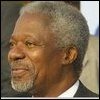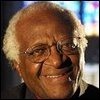Cautioning that "the international response to Sri Lanka’s worrying approach to human rights, good governance and accountability as a ‘deafening global silence’ that may encourage other states to act in a similar way," Elders, an independent group of eminent global leaders, said Tuesday that "Sri Lankan government’s domestic conduct, as well as its recent unacceptable treatment of the United Nations in Sri Lanka warrants a firm, public response from its most influential friends – particularly China, India, Japan and the United States as well as the non-aligned group of countries."
Noting the following recent events in Sri Lanka as most concerning:
-
The persecution, intimidation, assassination and disappearance of government critics, political opponents, journalists and human rights defenders.
-
Ongoing detention of an estimated 8,000 suspected ex-combatants without charge or access to legal representation, their families or independent monitors.
-
The government’s failure to withdraw wartime emergency laws more than a year after the end of the conflict with the LTTE.
-
Lack of action by the government to address the political marginalisation of ethnic minorities that was at the root of Sri Lanka’s thirty years of war.
-
Unacceptable behaviour towards the United Nations — including a siege by demonstrators of UN offices in Colombo, led by a Cabinet Minister — following the UN Secretary-General’s appointment of a panel of experts to advise him on accountability issues relating to alleged violations of international human rights and humanitarian law committed by both sides during the final stages of the conflict in Sri Lanka,
the Elders urged the international community to insist that the government of Sri Lanka takes the following actions:
-
Withdraw wartime emergency legislation and make a public commitment to uphold the human rights of all citizens of Sri Lanka, including minorities.
-
Allow immediate ICRC access to the estimated 8,000 people detained on suspicion of being ex-combatants.
-
Co-operate with the UN Secretary-General’s panel of experts on accountability, including granting visas if requested.
-
Ensure that any prosecutions are based on evidence and not political expediency; cease political interference in the work of the judiciary.
-
Allow domestic and international NGOs and media to carry out their work in Sri Lanka without harassment, intimidation or undue restrictions.
-
Begin a meaningful process of consultation with people in the north and east of the country on land issues and economic development as well as constitutional reforms to address long-standing political marginalisation of ethnic minorities.
-
Ensure the security of United Nations operations and personnel.
Kofi Annan, former UN Secretary-General said:
 “There has been a deafening global silence in response to Sri Lanka’s actions, especially from its most influential friends. The international community cannot be selective in its approach to upholding the rule of law and respect for human rights. Impunity anywhere is a threat to international peace and security everywhere.”
“There has been a deafening global silence in response to Sri Lanka’s actions, especially from its most influential friends. The international community cannot be selective in its approach to upholding the rule of law and respect for human rights. Impunity anywhere is a threat to international peace and security everywhere.”
Archbishop Desmond Tutu, chair of The Elders said:
 “The government of Sri Lanka needs to show a much greater commitment to achieving meaningful reconciliation. The ongoing persecution and disappearances of human rights activists, journalists and government opponents is truly terrifying.
“The government of Sri Lanka needs to show a much greater commitment to achieving meaningful reconciliation. The ongoing persecution and disappearances of human rights activists, journalists and government opponents is truly terrifying.
“Unfortunately, previous internal commissions have done little to reveal the truth behind human rights abuses. It is doubtful that the President’s ‘Lessons Learned and Reconciliation Commission’ will help Sri Lankans to work towards lasting peace and reconciliation.”
(For updates you can share with your friends, follow TNN on Facebook and Twitter )
